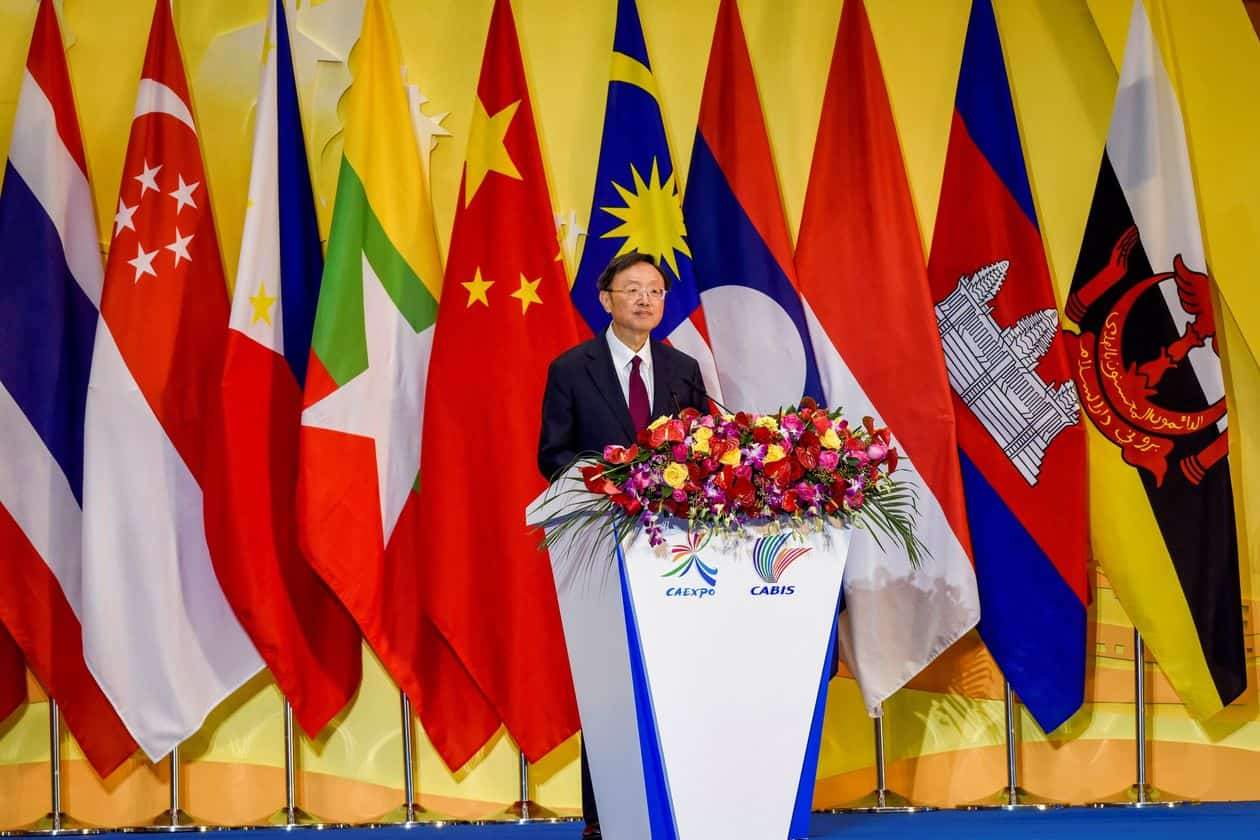China’s Top Diplomat Warns Biden Against Meddling in Hong Kong, Xinjiang

China’s top diplomat warned the U.S. not to cross a “red line,” in an attempt to steer a delicate bilateral relationship toward areas of cooperation as President Biden signals continuity with the previous administration on hot-button issues including Hong Kong and Xinjiang.
Yang Jiechi on Tuesday Beijing time emphasized the potential for a healthy U.S.-China relationship on public health, trade and climate, echoing recent language from leader Xi Jinping. But he left limited room for negotiation on issues such as human rights, the coronavirus response and what he called U.S. interference in Taiwan, Hong Kong, Tibet and Xinjiang.
“These issues concern China’s core interests, national dignity, as well as the sensitivities of its 1.4 billion people,” Mr. Yang said in a video address to the National Committee on United States-China Relations in New York. “They constitute a red line which must not be crossed.”
Secretary of State Antony Blinken had in an interview that aired hours earlier on MSNBC criticized China for having broken its promises on Hong Kong’s autonomy and handling of the Covid-19 outbreak with a lack of transparency.
Mr. Blinken—whose message deviated little from that of his predecessor, Mike Pompeo —described China as a “significant challenge” to the U.S. but said strong alliances are an advantage for Washington in confronting China.
He said the U.S. should offer haven to Hong Kong residents facing repression in the former British colony, as the U.K. began to do on Sunday.
“We’ve seen China act egregiously to undermine the very commitments it made during the handover of Hong Kong,” Mr. Blinken said.
In addition to pressuring China on Hong Kong, the Biden administration appears intent on pursuing other red-line issues, including Taiwan, whose de facto ambassador in Washington was invited to Mr. Biden’s inauguration last month, a first since 1979.
Mr. Blinken also said he supported “standing up for our values when China is challenging them, including in Xinjiang against the Uighurs.”
President Biden has yet to speak with Mr. Xi, despite efforts by Beijing to set a high-level dialogue.
In an address last week to the World Economic Forum, Mr. Xi had warned the U.S. against pursuing what he called confrontation, which he said “will lead us to a dead end.”
In his address Tuesday, Mr. Yang said there is a strong case for cooperation between Washington and Beijing, blaming the derailing of relations on the Trump administration.
“For the past four years, the Trump administration adopted misguided policies against China, plunging the relationship into its most difficult period since the establishment of diplomatic ties,” he said.
A number of other top Chinese officials have addressed American audiences in recent days, in each case appearing to stress that U.S. policy under Mr. Biden needs to change more than China does.
Vice Premier Wang Qishan told business leaders in the U.S. last week that China seeks a relationship of mutual respect and devoid of conflict and confrontation, according to a summary of the private meeting in state-run China Daily. An American who joined the video meeting said Mr. Wang was uncompromising in describing China’s governance model as correct.
Mr. Wang’s message, this person said, was effectively: “Here are the rules of the road.”
Photo: Yang Jiechi, shown in November, emphasized the potential for a healthy U.S.-China relationship on public health, trade and climate. - AGENCE FRANCE-PRESSE/GETTY IMAGES
Link: China’s Top Diplomat Warns Biden Against Meddling in Hong Kong, Xinjiang - WSJ




